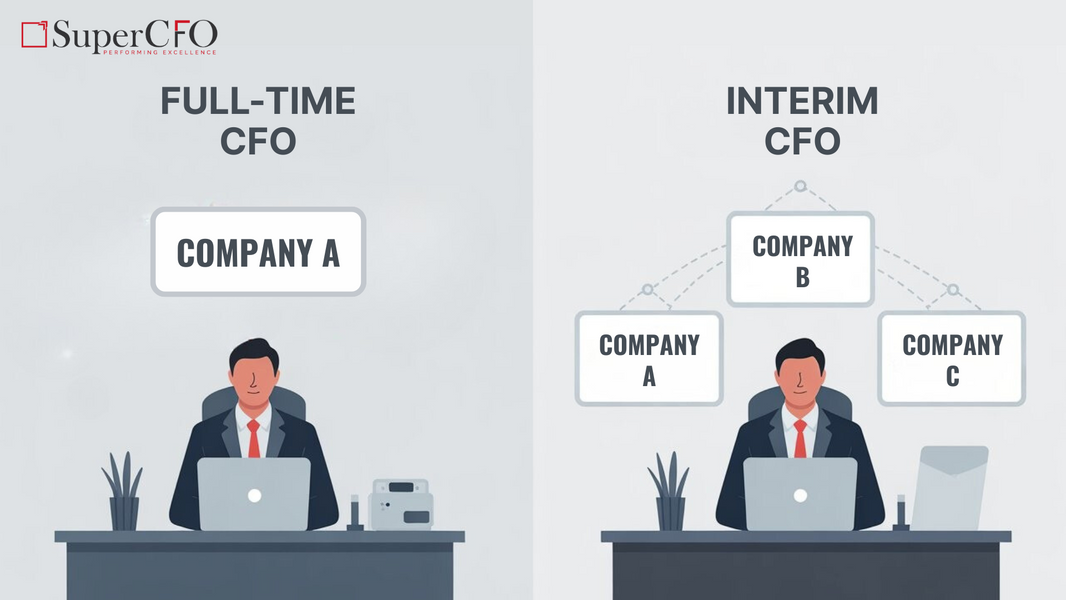Every business hits inflexion points where financial leadership becomes critical. The question is not if you’ll need a CFO, but when. And sometimes, the right answer isn’t a permanent hire, it’s an interim CFO.
Let’s do a deep dive into four scenarios where bringing in an interim CFO can mean the difference between chaos and clarity.
1. Post-Merger or Acquisition (M&A)
After an M&A deal, the financial complexity skyrockets: integrating systems, aligning reporting, and ensuring synergies are realised. Interim CFOs step in with years of real-world experience:
-
Standardising reporting across entities
-
Guiding integration of ERP/accounting systems
-
Advising on cash flow alignment and debt obligations
Example: A mid-sized manufacturer acquiring a competitor hired an interim CFO to consolidate financial reporting in under 90 days. The speed of execution reassured investors and allowed the CEO to focus on culture integration.
2. Leadership Gap or Sudden Departure
If your CFO resigns unexpectedly, business continuity is at risk. An interim CFO ensures:
-
Immediate stabilisation of financial operations
-
Continuation of audits, board reporting, and fundraising activities
-
Breathing space to recruit a permanent leader
Example: A SaaS company lost its CFO just weeks before a funding round. An interim CFO stepped in, secured investor confidence, and even refined the valuation model to improve negotiation leverage.
3. Turnaround or Crisis Management
When revenues dip or debt pressures mount, interim CFOs step in to tackle the issue. They:
-
Restructure debt or renegotiate vendor contracts
-
Design turnaround cash-flow strategies
-
Build transparency and trust with creditors and stakeholders
Example: A retail chain on the brink of bankruptcy tapped an interim CFO who restructured supplier terms, slashed burn rate, and prepared the company for private equity rescue funding.
4. Preparing for IPO or Strategic Investment
An IPO or major funding event requires CFO expertise that many growth-stage firms don’t yet have in-house. Interim CFOs add value by:
-
Ensuring compliance with regulatory reporting
-
Building financial controls and governance frameworks
-
Coaching leadership teams on investor communication
Example: A biotech firm eyeing IPO needed sophisticated SEC-compliant reporting but couldn’t yet justify a permanent CFO hire. An interim CFO prepared the filings and guided the process until a full-time CFO was onboarded.
The Bottom Line
If your business is facing M&A integration, a leadership gap, a turnaround, or preparing for a major funding milestone, an interim CFO could be the smart bridge you need.










